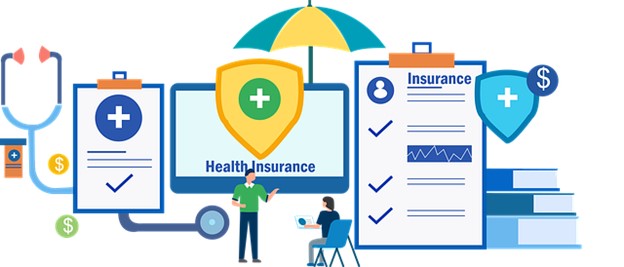At NorthPennNow, we have seen in our exploration of behavioral health that paying for drug and alcohol rehab without insurance can be daunting, but it’s not impossible.
Whether you’re struggling with addiction yourself or helping a loved one, there are multiple avenues to explore that can make rehab affordable.
Enter our latest resource, with a game plan for how to pay for rehab without insurance, step by step.
From payment plans and sliding scale fees to government programs and crowdfunding, this article will walk you through practical ways to cover the costs of addiction treatment without insurance.
We’ll also discuss how to maximize your financial resources and consider alternatives like Arizona Medicaid and insurance for future planning.

Getting the help you need for drug abuse, substance abuse, or mental health issues is essential, but the reality of rehab costs can be overwhelming, especially if you don’t have health insurance.
Fortunately, there are various ways to make rehab more affordable.
This resource explores how to navigate the financial side of rehab and what options you have if insurance isn’t available. By being proactive and creative, you can find ways to fund your recovery journey.
The cost of rehab can vary significantly depending on the type of treatment, location, and duration. For example, even an accessible inpatient rehab program tends to be more expensive due to the 24/7 care and residential accommodations, while outpatient programs may offer more affordable options.
In general, rehab costs can range anywhere from $5,000 to $50,000 or more for high-end treatment centers.
Knowing these potential costs upfront helps you plan and explore ways to cover your treatment.
The cost of rehab can vary widely based on several factors, including the type of treatment setting, location, and services provided. For instance, inpatient treatment tends to be more expensive due to the comprehensive care and residential accommodations, while outpatient rehab might be more affordable.
Additionally, the location of the treatment center can influence costs, with facilities in urban areas often being pricier than those in rural settings.
Another significant factor is the availability of funding from the Substance Abuse and Mental Health Services Administration (SAMHSA). SAMHSA provides grants to states to support substance abuse treatment services, including rehab programs.
These grants can help reduce the cost of rehab for individuals who may not have the financial means to pay for treatment. By leveraging SAMHSA funding, treatment centers can offer more affordable options for those in need of substance abuse treatment.

Many drug rehab centers offer payment plans and financing options to make treatment accessible for those without insurance. These plans break down the total cost into manageable monthly payments, allowing you to spread out the financial burden over time.
Some rehab centers even work with third-party financing companies that provide loans specifically for healthcare expenses.
It’s essential to contact the treatment facility directly to ask about available payment plans. In some cases, they may offer in-house financing with little to no interest.
Some treatment centers provide drug or alcohol rehab services on a sliding scale fee basis, which adjusts the cost of care based on your income level. This means that if you have a lower income, you might be eligible for reduced fees or a significantly discounted rate.
Non-profit rehab facilities are often more likely to offer sliding scale fees, so it’s worth researching these options in your area.
Several non-profit organizations and foundations offer scholarships and grants for alcohol rehab and addiction treatment. These scholarships are often based on financial need or may target specific demographics, such as veterans or people from low-income backgrounds.
To apply for a rehab scholarship, you’ll typically need to demonstrate your financial situation, provide a letter explaining your need for treatment, and sometimes obtain recommendations from healthcare providers.
Start by researching national and local organizations that support addiction recovery efforts, and reach out to them for more information about available scholarships.
Crowdfunding has become a popular way to raise funds for medical expenses, including addiction treatment. Platforms like GoFundMe allow individuals to create campaigns explaining their need for financial help and sharing their story with friends, family, and the broader community.
Crowdfunding can be an effective way to collect small contributions from a large number of people, easing the overall financial burden.
When starting a crowdfunding campaign, be open and honest about your situation, and explain how the funds will be used for your treatment. Sharing your campaign across social media can increase visibility and support.
If you don’t have insurance, you may still qualify for government assistance programs like Medicaid. In Arizona, for example, using Arizona Medicaid for detox and residential programs can help cover essential services related to addiction treatment.
Medicaid eligibility is typically based on income, and once qualified, it can provide substantial financial relief for inpatient and outpatient rehab programs.
Even if you don't initially qualify for Medicaid, you may want to explore other state or federal assistance programs that help cover the costs of rehab or mental health treatment.
Many non-profit rehab centers provide low-cost or free addiction treatment to those in need. Organizations like Purpose Healing Center play a crucial role in providing affordable addiction treatment services for those without insurance.
These centers are often funded by donations or government grants, which allows them to offer services at a reduced cost or even for free to those who qualify.
While these facilities may not have the same luxury amenities as private treatment centers, they still provide essential care and support for those battling addiction.
Do your research to find non-profit rehab centers in your area, and be prepared to join a waitlist in some cases, as these programs can be in high demand.
If you’re employed, your workplace may offer an Employee Assistance Program (EAP), which could help cover some of the costs associated with addiction treatment.
EAPs provide confidential support for employees facing personal issues, including substance abuse, and can often refer you to resources or treatment programs that fit your needs.
While EAPs don’t typically pay for the entire cost of rehab, they may cover the initial assessment or outpatient care, reducing the amount you have to pay out-of-pocket.
Some individuals opt to take out a personal loan or use credit cards to finance their rehab treatment. While this option can be helpful in the short term, it’s essential to carefully consider the long-term financial impact. Loans and credit cards carry interest, and repayment can become burdensome if not planned properly.
Consider this option only after researching low-interest healthcare loans or discussing financing options with your treatment provider.
If you’re currently uninsured, it’s worth considering enrolling in a healthcare plan once you’re eligible to cover future drug and alcohol rehab costs. While this won’t immediately help with paying for rehab, it can significantly reduce the cost of future treatments or aftercare.
For example, a Scottsdale rehab that takes nearly all forms of insurance can provide coverage for ongoing care, ensuring you have access to resources that support long-term recovery.

The Affordable Care Act (ACA) has been a game-changer in making addiction treatment more accessible and affordable. Under the ACA, health insurance plans are required to cover essential health benefits, which include substance use disorder treatment.
This means that individuals with health insurance through the ACA can access rehab services at a lower cost, significantly reducing the financial burden of seeking addiction treatment.
Moreover, the ACA has increased funding for substance abuse treatment services, ensuring that more people can receive the help they need.
By expanding coverage and funding, the ACA has made it possible for many individuals to access comprehensive addiction treatment services, including inpatient and outpatient rehab, without facing prohibitive costs.
State-funded rehab programs are a vital resource for individuals who do not have adequate income or insurance coverage to pay for drug or alcohol addiction treatment.
These programs use government funds to provide a range of services, including detox, residential treatment, outpatient programs, partial hospitalization, and intensive outpatient care.
Many state-run facilities also offer aftercare, often referred to as continuing care, to support long-term recovery.
The funding for these programs comes from various sources, including federal grants, Medicaid reimbursement in the form of insurance such as AHCCCS in Arizona, and state budget allocations. By utilizing these funds, state-funded rehab programs can offer essential addiction treatment services to those who might otherwise be unable to afford care.
Eligibility for state-funded rehab programs varies by state, but most have strict requirements to ensure that the resources are allocated to those in greatest need. Common eligibility criteria include:
To determine if you qualify for state-funded rehab, it’s best to contact your state’s mental health or substance use agency. They can provide specific information about the eligibility requirements and help you navigate the application process.
While not having insurance can make paying for drug rehab more challenging, it doesn’t mean that help is out of reach. From payment plans and sliding scale fees to scholarships, grants, and government assistance programs, there are many ways to access addiction treatment without insurance.
Recovery is an investment in your future, and taking the time to explore all available options can make it achievable. Whether you lean on community support, seek out non-profit facilities, or tap into government resources, there’s a path forward.
Yes, many rehab centers offer financing options, payment plans, and sliding scale fees. Additionally, non-profit rehab centers, scholarships, and government programs can provide assistance for those without insurance.
Yes, using Arizona Medicaid for detox and residential programs can help cover the cost of addiction treatment for qualified individuals in the state.
Start by researching local non-profit rehab centers, applying for scholarships or grants, and checking if you’re eligible for Medicaid or other government assistance programs.
Yes, many people successfully raise funds for rehab through crowdfunding platforms like GoFundMe by sharing their stories and reaching out to friends, family, and the wider community.
Most rehab centers offer payment plans that allow you to spread out the cost of treatment over time. Be sure to ask the facility about their financing options.